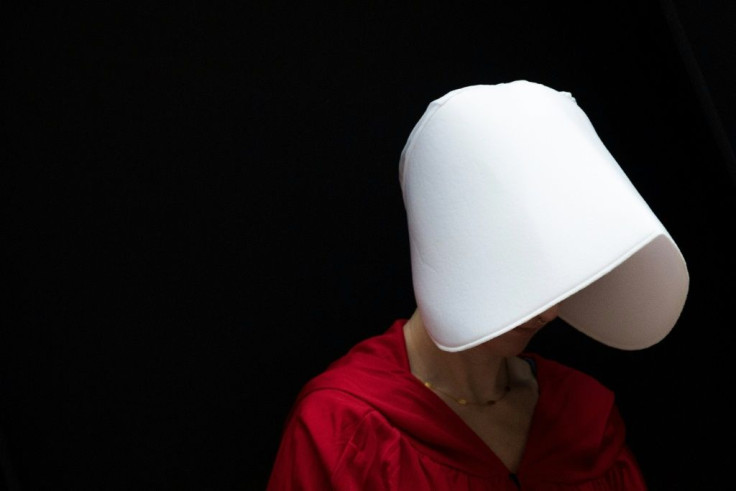Amy Coney Barrett Served As Handmaid In Religious Fringe Group, People Of Praise
KEY POINTS
- A directory acquired by the Washington Post shows SCOTUS nominee Amy Coney Barrett served as a "handmaid" in the fringe religious group People of Praise
- The post is one of leadership, and the name was changed in 2017 due to the theocratic dystopia novel "A Handmaid's Tale"
- Barrett has previously said her religion would not interfere with her legal judgment, but has told law students their purpose should be to "build the kingdom of God"
Amy Coney Barret served as a "handmaid" in the insular, extremist religious community People of Praise, a 2010 directory indicated.
The Washington Post reported the title of "handmaid" -- a reference to Mary’s role as a “handmaid” of God in the King James translation of the Bible, Luke 1:38 -- was actually a position of authority for female members of the community although it did not carry the same weight as the positions given to male members.
Sean Connolly, a spokesperson for the group, told the Post the title was changed to “woman leader” in 2017. He said in 2018 the change was made due to the implications of the phrase “shift[ing] dramatically in our culture in recent years” -- a likely a reference to the novel “A Handmaid’s Tale” by Margaret Atwood, in which women were stripped of their rights and those who could bear children were placed in sexual servitude. The signature red cloak and obscuring white bonnet of the caste were taken as a symbol by feminist groups protesting antiabortion measures early in Trump’s presidency.

People of Praise teaches female members to be subservient to their male peers.
“Make it a joy for him to lead you,” a 2015 article in the religion’s magazine titled “Holiness In Marriage” reads. “It is important for you to verbalize your commitment to submission."
An anonymous source raised in the community told the Post she was told not to “emasculate” her male peers by besting them in conversation.
“I was made aware of the difference from a young age,” she said, “I was aware that it would have been better if I had been born a boy.”
Sources were reluctant to give their names when interviewed for fear of retaliation, the Post said.
Barrett was not asked about her affiliation with the group during her 2017 confirmation hearing to the federal appellate bench.

People of Praise has done its part to scrub her from its records, removing at least 10 links to the faith’s magazine that mentioned her and eventually removing an archive. The church has refused to confirm or deny her membership although Barret served in a position at a Trinity school that required holders to be members of the faith.
Connolly told the Post the website removals were made after privacy concerns were voiced amid heightened media attention.
Even without knowledge of her involvement with People of Praise, her beliefs raised eyebrows at her 2017 confirmation hearing. Sen. Diane Feinstein, D-Calif., said: “The dogma lives loudly within you. And that’s of concern when you come to big issues that large numbers of people have fought for for years in this country.”
“I’m being considered for a position on a court of appeals, and there would be no opportunity to be a no vote on Roe, and as I said to the committee, I would faithfully apply all Supreme Court precedent,” Barrett responded.
Feinstein then noted that for a quarter-century every nominee had said as much, and many had gone on to break their word.

There’s good reason to doubt whether Barrett could put her faith aside. A commencement speech she gave at Notre Dame contains several sections telling law students their goals should be religious, not legal.
Historian John Fea of Messiah University told the Post Barrett would be the first Supreme Court Justice from a group like People of Praise and that senators were within their rights to ask about her faith. But, he noted, “everything about Amy Coney Barrett’s career contradicts the idea that women in People of Praise can’t have careers or be successful.”
© Copyright IBTimes 2024. All rights reserved.




















